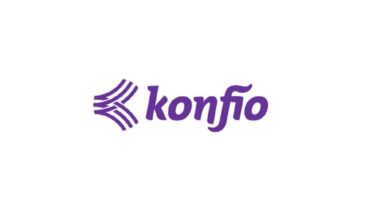Mariana Costa, founder of Laboratoria, a programming bootcamp for Latin American women, found a way to mix two worlds she was passionate about: technology and helping women. Originally from Peru, Mariana combines technology with social impact by running programming bootcamps for women from underserved backgrounds. The program seeks to prepare these women for a career in tech by placing them in jobs with a success rate of over 85%. Laboratoria started operating in Lima but has since expanded to Santiago, Chile, Mexico City, Guadalajara, and Sao Paulo.
Laboratoria tackles both sides of the equation by propelling a digital and cultural transformation within the tech companies so that they will continue growing their teams but with a lens of diversity and inclusion.
In this episode, I sit down with Mariana and a third special guest, her two week old baby, to talk about how she got into tech with her background in social impact, and what it was like to be on a panel in Silicon Valley with Barack Obama and Mark Zuckerberg. We also cover her advice on building a non profit in Latin America, how companies can hire more women in tech, and Laboratoria’s plans for expansion across Latin America.
Becoming an Entrepreneur
While getting her Master’s degree in Public Administration and Development at Columbia University, Mariana and her husband, who is a programmer, decided to move back to Peru. Rodolfo, a friend from her Master’s program, had also moved back to Peru at the time, and together they started brainstorming on what could be done in their home country. It was clear from the team composition that it would be something on the social impact route combined with technology.
Before Laboratoria, Mariana and her team went through many ideas that didn’t get off the ground, and in that process stumbled upon a problem in the tech industry: the lack of female software developers. Learn more about how Laboratoria challenged the status quo on this episode of Crossing Borders.
“We were really lean”
Mariana recalls Laboratoria’s beginnings: running a pilot with 15 students and being amazed by the interest that several companies expressed in hiring female developers. Although it was a very low cost pilot due to their limited budget, it was the validation they needed to realize that their program had growth potential. A better understanding of the market also taught them when to be aggressive, and when to be more cautious in Laboratoria’s growth.
Advice for hiring women in tech
Part of what Laboratoria does is work with companies to diversify their pipeline, a process which requires open minds and policies. Mariana explains that companies need to change their prerequisites and make an additional effort to recruit outside of the traditional universities in places like Laboratoria to include more women in their pool of candidates.
Find out what companies can do to have more diversity and inclusion in their hiring processes on this episode.
Mariana Costa is creating digital and cultural transformation in Latin America’s tech industry through her work with Laboratoria. She is helping women from low-income backgrounds unleash their full potential and overcome structural and societal barriers. Teams that are built with a lens of diversity and inclusion can make Latin America’s digital economy grow more quickly.
Show Notes:
- [1:35] – About Laboratoria
- [3:45] – Becoming entrepreneurs in Latin America
- [7:01] – A picture Barack Obama and Mark Zuckerberg
- [9:28] – Laboratoria’s success rate
- [11:59] – Choosing the tech path
- [13:54] – What did you do before you saw that weird screen of code?
- [15:31] – Biggest lessons you learned from working in social impact
- [17:48] – Finding a market for Laboratoria
- [19:35] – Thoughts on international expansion
- [22:51] – Raising money for Colombia
- [25:54] – Strategies for hiring more women in tech
- [29:18] – Advice to Mariana’s younger self
- [30:50] – Books, blogs, and podcasts Mariana recommends
- [32:30] – What’s next for Mariana and Laboratoria?
Resources Mentioned:
- Laboratoria
- The Lean Startup – Eric Ries
- Masters of Scale – Ried Hoffman
- How I Built This – Guy Raz
- On Being
- Radio Ambulante


